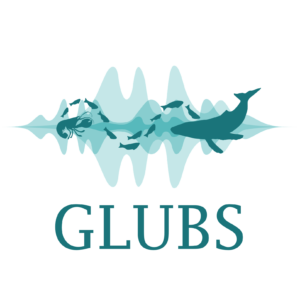
Aquatic environments encompass the world’s most extensive habitats, rich with sounds produced by a diversity of animals. Passive acoustic monitoring is an increasingly accessible remote sensing technology that represents an unprecedented, non-invasive method to monitor these environments. Detection of sound-producing species assists in mapping their spatiotemporal distribution and biologically important areas. With worldwide biodiversity in significant decline and underwater soundscapes being altered as a result of anthropogenic activities, there is a need to document, quantify, and understand biotic sound sources–potentially before they disappear. A vital step towards these goals is the development of an accessible platform that: 1) integrates and expands existing repositories to provide a global reference library of known and unknown biological sound sources; 2) houses a data repository portal for annotated and unannotated audio recordings; 3) develops artificial intelligence tools to extract and characterize sounds; 4) includes benchmark training datasets for signal detection and classification; and 5) promotes public awareness of aquatic sound. These objectives are often met individually on regional and taxa-specific scales, and many are not sustained, thus collectively, an enduring global database on an integrated platform has not been realized. The Global Library of Underwater Biological Sounds aims to address this by developing and integrating applications to achieve these, all housed under a single platform, and, in doing so, engage the general public through associated reference material. To complete this, our working group includes expertise of bioacousticians, bioinformaticians, propagation experts, web engineers, and signal processing specialists (e.g., artificial intelligence). Learn more about the effort at GLUBS.org and our first global passive acoustic collaborative study at WO-PAM.com.
- Chair(s)
- Miles Parsons (Australia), Sierra Jarriel (USA)
- Other Full Members
- Lucia Di Iorio (France), Tess Gridley (South Africa), Tzu-Hao Lin (China-Taipei), Shyam Madhusudhana (Mauritius), Aaron Rice (USA), Fannie Shabangu (South Africa), Renata Sousa-Lima (Brazil), Louisa van Zeeland (UK)
- Associate Members
- Kranthikumar Chanda (India), Fabio Frazao (Canada), Songhai Li (China-Beijing), Simon Linke (Australia), Aran Mooney (USA), Sophie Nedelec (UK), Filipa Samara (Iceland), Laela Sayigh (USA), Jenni Stanley (New Zealand), Karolin Thomisch (Germany)
- Reporter
- Peter Croot
- Terms of Reference
Soniferous species list: Produce and continually update and open-access inventory of species that are known and anticipated to produce sound underwater.
Library of mammal sounds: Collate an inventory of marine mammal sounds, commencing with those collected by the GLUBS partners.
Categorizing sound types: Develop a structured practice for the standard categorization of sounds when reporting new sounds and collating previously reported sounds into meaningful groups.
Library of unknown sounds: Develop an open-access searchable tool that provides reference sounds for categorized unknown sound types together with temporal and spatial variations.
Artificial intelligence tools: Develop new, standardized methods for detecting, identifying and characterizing underwater sounds.
Promote awareness of underwater sound: Develop and implement ways to engage managers, artists, citizen scientists and the general public to promote knowledge of the importance of underwater sound to marine fauna.
GLUBS cyberinfrastructure: Develop the flow process to integrate these systems into a practical platform that would implement GLUBS as a global application.
- Approved
- October 2023
- Financial Sponsors
- SCOR, NSF, Richard Lounsbery Foundation
- Group Website
- https://www.glubs.org/